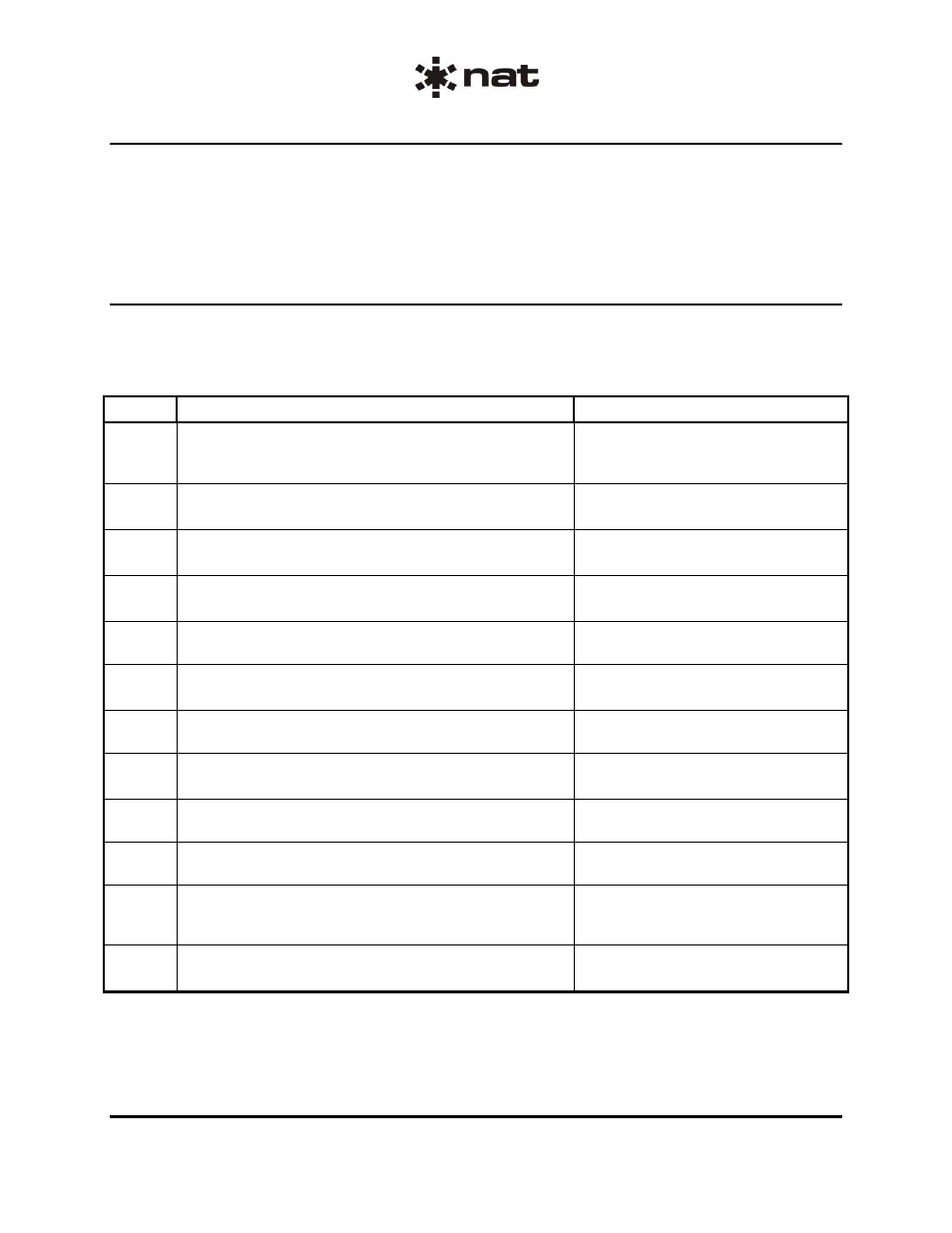6 keypad function tables – Northern Airborne Technology PTA12-1xx User Manual
Page 31

PTA12-100 POTS Telephone Adapter with Display
SM55-2 Installation and Operation Manual
Section 3 Rev: 1.00
Issue 4
Page 3-8
ENG-FORM: 806-0112.DOT
CONFIDENTIAL AND PROPRIETARY TO NORTHERN AIRBORNE TECHNOLOGY LTD.
pressed, the selected address data from both lines is deleted (cleared) and the completion message
Deleted! is displayed. The unit then returns to Edit mode.
The ESC button may be used at any time to cancel the current operation. Pressing the ESC button from
Edit mode returns the unit to Default Power-Up mode.
3.6
Keypad Function Tables
The PTA12-100 keypad buttons function differently depending on the current mode of the unit. A brief
outline of the differences is given below as a quick reference guide. Table 1 shows Default and Recall
modes and Table 2 shows Call and Edit modes.
Button
Default Power-Up Mode Function
Recall Mode Function
0 – 9
Number buttons are used only to enter address
locations 01 through 16. This puts the PTA12-100 into
Recall mode.
Number buttons are used only to
enter address locations 01 through
16.
* No
function
Only
←
available to toggle display
between name and number
# No
function
Only
→
available to toggle display
between name and number
ESC
Cancels current button activity
Default mode is entered
HOOK
Call mode is entered (hook switch is toggled to active)
Call mode is entered (hook switch is
toggled to active)
HOLD
No function
No function
REDIAL Retrieves the last number dialed and displays it. (To
send the number, press HOOK and then ENTR)
No function
FLASH No function
No function
UP
Puts the PTA12-100 into Recall mode.
Scrolls up through the list of stored
numbers
DOWN Puts the PTA12-100 into Recall mode.
Scrolls down through the list of
stored numbers
BRT
Increases display brightness and wraps around from
max to min brightness. Brightness level is displayed.
Increases display brightness and
wraps around from max to min
brightness
ENTR
Puts the PTA12-100 into Edit mode.
No function
Table 1
Default and Recall Modes
